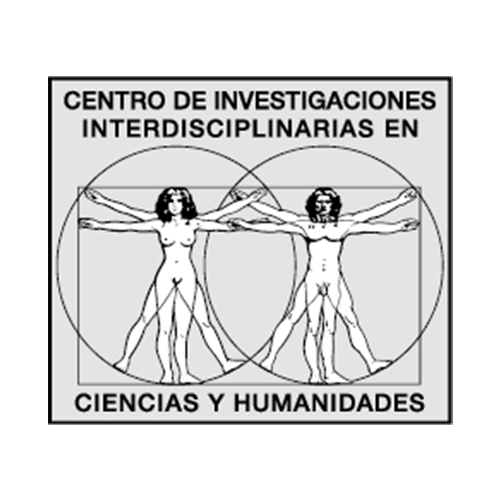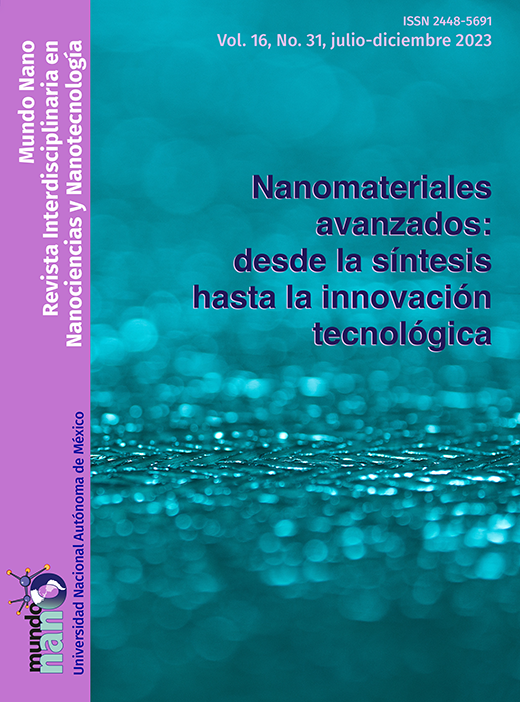Study of the toxicological effects of nanoplastics on colon cells
Main Article Content
Abstract
Plastic waste represents a threat to the environment, not only because of its accumulation and contamination, but also because of the constant degradation it undergoes, leading to its transformation into micro and nanoplastics (MNPLs). The size range of MNPLs makes it easier for them to cross the barriers of organisms, that is, the natural mechanisms that protect the organism from the entry of harmful substances or pathogens, becoming a potential risk factor for human health due to its relatively unknown effects. Human absorption of nanoplastics can occur unintentionally through the food chain through consumption of contaminated food and beverages or possibly through migration of nanoplastic particles from packaging materials to food products, then it is a concern that requires reliable data to assess its safety. In this review, we focus on the literature on research studies in which the effects of MNPLs on colon epithelial cells have been evaluated. These works have evaluated the danger of MNPLs through tests of cell viability, membrane integrity, localization and translocation of MNPs, induction of reactive oxygen species and genotoxic damage to have a comprehensive view of their potentially harmful effects. Most of the plastics produced by the industry are composed of different types of polymers, and given the technological limitation to obtain environmental samples, we work mainly with models of synthesized micro and nanoplastic particles.
Downloads
Article Details

Mundo Nano. Revista Interdisciplinaria en Nanociencias y Nanotecnología por Universidad Nacional Autónoma de México se distribuye bajo una Licencia Creative Commons Atribución-NoComercial 4.0 Internacional.
Basada en una obra en http://www.mundonano.unam.mx.
References
Browne MA, Galloway T, Thompson R. Microplastic-an emerging contaminant of potential concern?. Integrated Environmental Assessment and Management. 2007;3(4):559-61. DOI: https://doi.org/10.1002/ieam.5630030412
Browne MA, Crump P, Niven SJ, Teuten E, Tonkin A, Galloway T, Thompson R. Accumulation of microplastic on shorelines woldwide: sources and sinks. Environmental Science and Technology. 2011;45(21):9175-9. DOI: https://doi.org/10.1021/es201811s
Cole M, Tamara SG. Ingestion of nanoplastics and microplastics by pacific oyster larvae. Environmental Science and Technology. 2015;49(24):14625-32. DOI: https://doi.org/10.1021/acs.est.5b04099
Cole M, Lindeque P, Fileman E, Halsband C, Goodhead R, Moger J, Tamara SG. Microplastic ingestion by zooplankton. Environmental Science and Technology. 2013;47(12):6646-55. DOI: https://doi.org/10.1021/es400663f
Colton JB, Knapp FD, Burns BR. plastic particles in surface waters of the northwestern Atlantic. Science. 1974;. DOI: https://doi.org/10.1126/science.185.4150.491
Cortés C, Domenech J, Salazar M, Pastor S, Marcos R, Hernández A. Nanoplastics as a potential environmental health factor: effects of polystyrene nanoparticles on human intestinal epithelial Caco-2 cells. Environmental Science: Nano. 2019;7(1):272-85. DOI: https://doi.org/10.1039/C9EN00523D
Domenech J, Hernández A, Rubio L, Marcos R, Cortés C. Interactions of polystyrene nanoplastics with in vitro models of the human intestinal barrier. Archives of Toxicology. 2020;94(9):2997-3012. DOI: https://doi.org/10.1007/s00204-020-02805-3
Fendall LS, Sewell MA. Contributing to marine pollution by washing your face: microplastics in facial cleansers. Marine Pollution Bulletin. 2009;58(8):1225-8. DOI: https://doi.org/10.1016/j.marpolbul.2009.04.025
Fischer HC, Chan WCW. Nanotoxicity: the growing need for in vivo study. Current Opinion in Biotechnology. 2007;. DOI: https://doi.org/10.1016/j.copbio.2007.11.008
Inkielewicz-Stepniak I, Tajber L, Behan G, Zhang H, Radomski MW, Medina C, Maria JS-M. The role of mucin in the toxicological impact of polystyrene nanoparticles. Materials. 2018;11(5). DOI: https://doi.org/10.3390/ma11050724
Jani P, Halbert GW, Langridge J, Florence AT. Nanoparticle uptake by the rat gastrointestinal mucosa: quantitation and particle size dependency. Journal of Pharmacy and Pharmacology. 1990;42(12):821-6. DOI: https://doi.org/10.1111/j.2042-7158.1990.tb07033.x
Junqueira L, Uchoa C, Carneiro J. Histologia básica. Texto & atlas. 2015.
Kierszenbaum AL, Tres LT. Histología y biología celular. Introducción a la anatomía patológica. Madrid: Todos tus libros; 2012.
Koelmans AA, Besseling E, Shim WJ. Marine Anthropogenic Litter. 2015.
Kosuth M, Mason SA, Wattenberg EV. Anthropogenic contamination of tap water, beer, and sea salt. PLoS ONE. 2018;13(4). DOI: https://doi.org/10.1371/journal.pone.0194970
Lambert S, Sinclair C, Boxall A. Occurrence, degradation, and effect of polymer-based materials in the environment. Reviews of Environmental Contamination and Toxicology. 2014;227:1-53. DOI: https://doi.org/10.1007/978-3-319-01327-5_1
Lehner R, Weder C, Petri-Fink A, Rothen-Rutishauser B. Emergence of nanoplastic in the environment and possible impact on human health. Environmental Science and Technology. 2019;. DOI: https://doi.org/10.1021/acs.est.8b05512
Lehner R, Wohlleben W, Septiadi D, Landsiedel R, Petri-Fink A, Rothen-Rutishauser B. A novel 3D intestine barrier model to study the immune response upon exposure to microplastics. Archives of Toxicology. 2020;94(7):2463-79. DOI: https://doi.org/10.1007/s00204-020-02750-1
Li J, Yang D, Li L, Jabeen K, Shi H. Microplastics in commercial bivalves from China. Environmental Pollution. 2015;207:190-5. DOI: https://doi.org/10.1016/j.envpol.2015.09.018
Li WC, Tse HF, Fok L. Plastic waste in the marine environment: a review of sources, occurrence and effects. Science of the Total Environment. 2016;. DOI: https://doi.org/10.1016/j.scitotenv.2016.05.084
Liang B, Zhong Y, Huang Y, Lin X, Liu J, Lin L, Hu M. Underestimated health risks: polystyrene micro- and nanoplastics jointly induce intestinal barrier dysfunction by ROS-mediated epithelial cell apoptosis. Particle and Fibre Toxicology. 2021;18(1):1-19. DOI: https://doi.org/10.1186/s12989-021-00414-1
Lu L, Wan Z, Luo T, Fu Z, Jin Y. Polystyrene microplastics induce gut microbiota dysbiosis and hepatic lipid metabolism disorder in mice. Science of the Total Environment. 2018;631-632:449-58. DOI: https://doi.org/10.1016/j.scitotenv.2018.03.051
Magrì D, Sánchez-Moreno P, Caputo G, Gatto F, Veronesi M, Bardi G, Catelani T. Laser ablation as a versatile tool to mimic polyethylene terephthalate nanoplastic pollutants: characterization and toxicology assessment. ACS Nano. 2018;12(8):7690-70. DOI: https://doi.org/10.1021/acsnano.8b01331
Mahler GJ, Esch MB, Tako E, Southard TL, Archer SD, Glahn RP, Shuler ML. Oral exposure to polystyrene nanoparticles affects iron absorption. Nature Nanotechnology. 2012;7(4):264-71. DOI: https://doi.org/10.1038/nnano.2012.3
Martínez González V, Guerrero Rivera S, Mora-Longa G, Klagges Ormeño C, Moreno Araneda M, Miranda Montenegro M, Palacios Peñaranda M, Chaurra Arboleda A, Purca Cuicapusa S, Robinson-Duggon J, Vega-Baudrit J. La problemática de los micro y nanoplásticos en las costas americanas del Océano Pacífico. Mundo Nano. Revista Interdisciplinaria en Nanociencias y Nanotecnología. 2022;16(30):1e-34e. DOI: https://doi.org/10.22201/ceiich.24485691e.2023.30.69783
Megías M, Molist P, Pombal MA. Tipos celulares. Enterocito. Atlas de histología vegetal y animal. 2019;.
Murty BS, Shankar P, Raj B, Rath BB, Murday J. Textbook of nanoscience and nanotechnology. 2013. DOI: https://doi.org/10.1007/978-3-642-28030-6
Nowack B, Bucheli TD. Occurrence, behavior and effects of nanoparticles in the environment. Environmental Pollution. 2007;. DOI: https://doi.org/10.1016/j.envpol.2007.06.006
Oberdörster E, Zhu S, Blickley TM, McClellan-Green P, Haasch ML. Ecotoxicology of carbon-based engineered nanoparticles: effects of fullerene (C60) on aquatic organisms. Carbon. 2006;44(6):1112-20. DOI: https://doi.org/10.1016/j.carbon.2005.11.008
On the definition of nanomaterial. Official Journal of the European Union. 2011;2011(54):38-.
Paul MB, Stock V, Cara-Carmona J, Lisicki E, Shopova S, Fessard V, Braeuning A, Sieg H, Böhmert L. Micro- and nanoplastics-current state of knowledge with the focus on oral uptake and toxicity. Nanoscale Advances. 2020;. DOI: https://doi.org/10.1039/D0NA00539H
Pitt JA, Pitt JA, Kozal JS, Jayasundara N, Massarsky A, Trevisan R, Geitner N, Wiesner M, Levin ED, Di Giulio RT. Uptake, tissue distribution, and toxicity of polystyrene nanoparticles in developing zebrafish (Danio Rerio). Aquatic Toxicology. 2018;194:185-94. DOI: https://doi.org/10.1016/j.aquatox.2017.11.017
Human health impacts of microplastics and nanoplastics. 2015.
Stock V, Böhmert L, Lisicki E, Block R, Cara-Carmona J, Pack LK, Selb R. Uptake and effects of orally ingested polystyrene microplastic particles in vitro and in vivo. Archives of Toxicology. 2019;93(7):1817-33. DOI: https://doi.org/10.1007/s00204-019-02478-7
Teles M, Balasch JC, Oliveira M, Sardans J, Peñuelas J. Insights into nanoplastics effects on human health. Science Bulletin. 2020;. DOI: https://doi.org/10.1016/j.scib.2020.08.003
Wagner M, Lambert S. Freshwater microplastics - The handbook of environmental chemistry. Springer Nature; 2018. DOI: https://doi.org/10.1007/978-3-319-61615-5
Walczak AP, Kramer E, Hendriksen PJM, Helsdingen R, Zande MVD, Rietjens IMCM, Bouwmeester H. In vitro gastrointestinal digestion increases the translocation of polystyrene nanoparticles in an in vitro intestinal co-culture model. Nanotoxicology. 2015;9(7):886-94. DOI: https://doi.org/10.3109/17435390.2014.988664
Walczak AP, Kramer E, Hendriksen PJM, Tromp P, Helsper JPFG, Zande MVD, Rietjens IMCM, Bouwmeester H. Translocation of differently sized and charged polystyrene nanoparticles in in vitro intestinal cell models of increasing complexity. Nanotoxicology. 2014;9(4):453-61. DOI: https://doi.org/10.3109/17435390.2014.944599
Wu B, Wu X, Liu S, Wang Z, Chen L. Size-dependent effects of polystyrene microplastics on cytotoxicity and efflux pump inhibition in human Caco-2 cells. Chemosphere. 2019;221:333-41. DOI: https://doi.org/10.1016/j.chemosphere.2019.01.056





